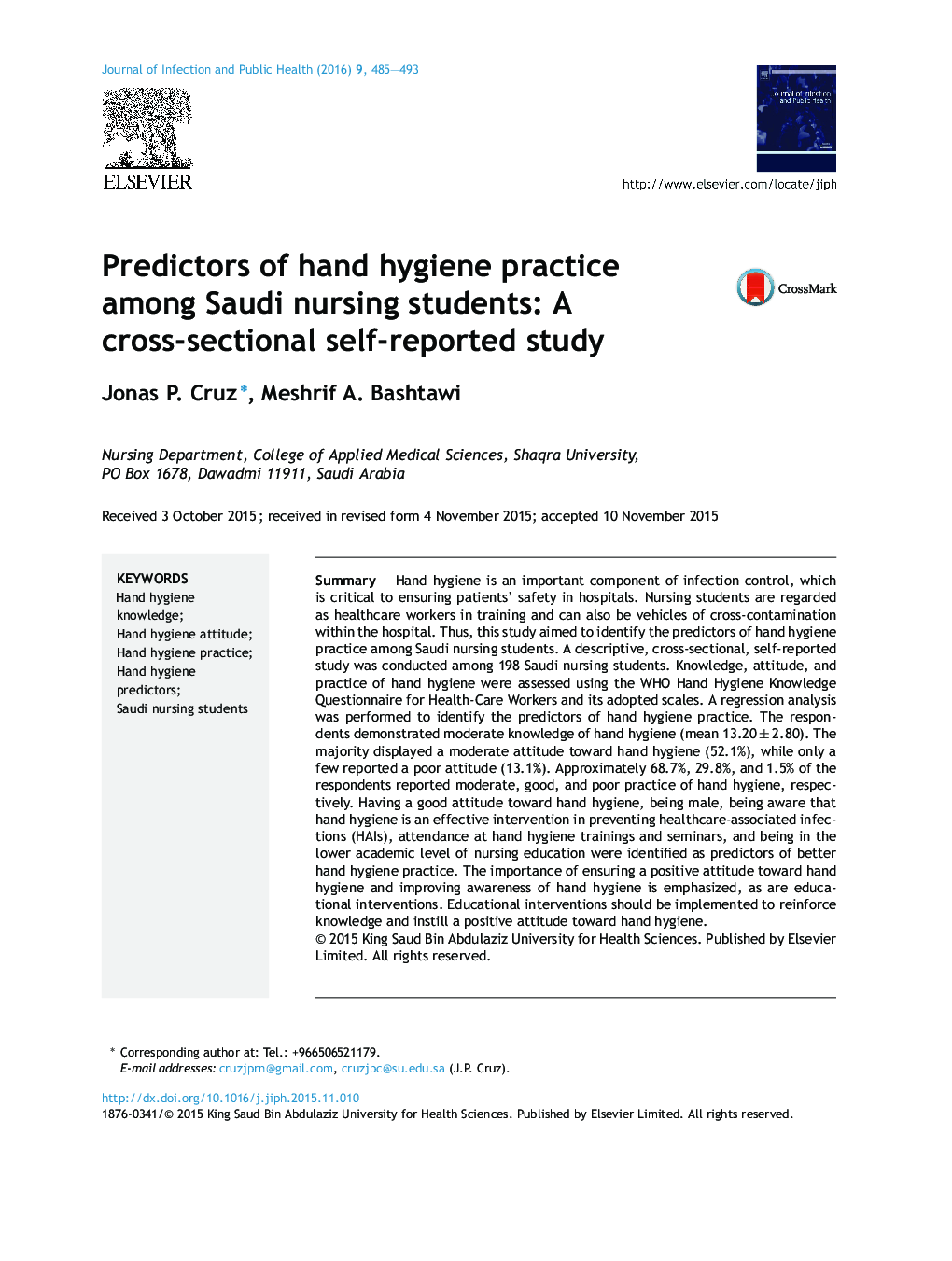| Article ID | Journal | Published Year | Pages | File Type |
|---|---|---|---|---|
| 3405906 | Journal of Infection and Public Health | 2016 | 9 Pages |
SummaryHand hygiene is an important component of infection control, which is critical to ensuring patients’ safety in hospitals. Nursing students are regarded as healthcare workers in training and can also be vehicles of cross-contamination within the hospital. Thus, this study aimed to identify the predictors of hand hygiene practice among Saudi nursing students. A descriptive, cross-sectional, self-reported study was conducted among 198 Saudi nursing students. Knowledge, attitude, and practice of hand hygiene were assessed using the WHO Hand Hygiene Knowledge Questionnaire for Health-Care Workers and its adopted scales. A regression analysis was performed to identify the predictors of hand hygiene practice. The respondents demonstrated moderate knowledge of hand hygiene (mean 13.20 ± 2.80). The majority displayed a moderate attitude toward hand hygiene (52.1%), while only a few reported a poor attitude (13.1%). Approximately 68.7%, 29.8%, and 1.5% of the respondents reported moderate, good, and poor practice of hand hygiene, respectively. Having a good attitude toward hand hygiene, being male, being aware that hand hygiene is an effective intervention in preventing healthcare-associated infections (HAIs), attendance at hand hygiene trainings and seminars, and being in the lower academic level of nursing education were identified as predictors of better hand hygiene practice. The importance of ensuring a positive attitude toward hand hygiene and improving awareness of hand hygiene is emphasized, as are educational interventions. Educational interventions should be implemented to reinforce knowledge and instill a positive attitude toward hand hygiene.
